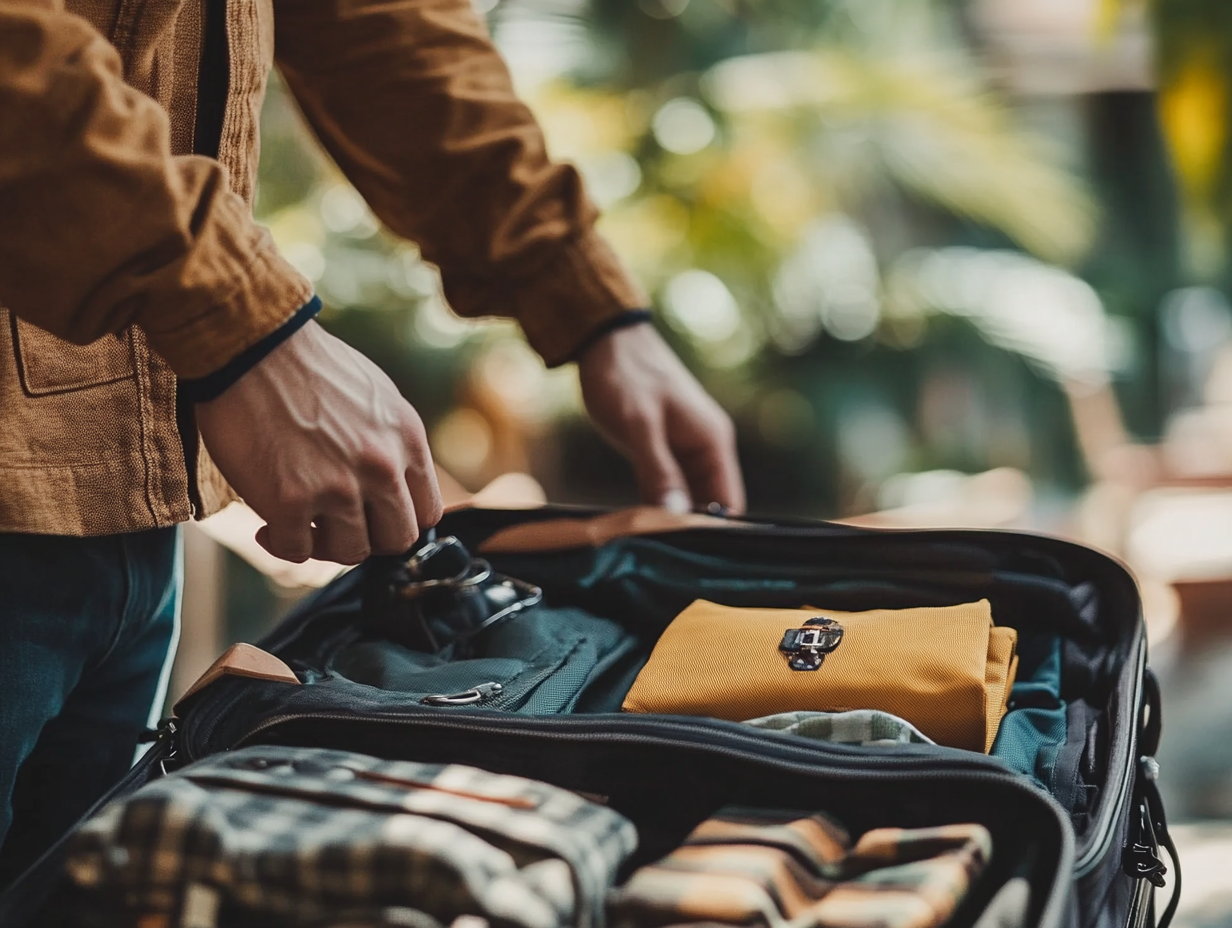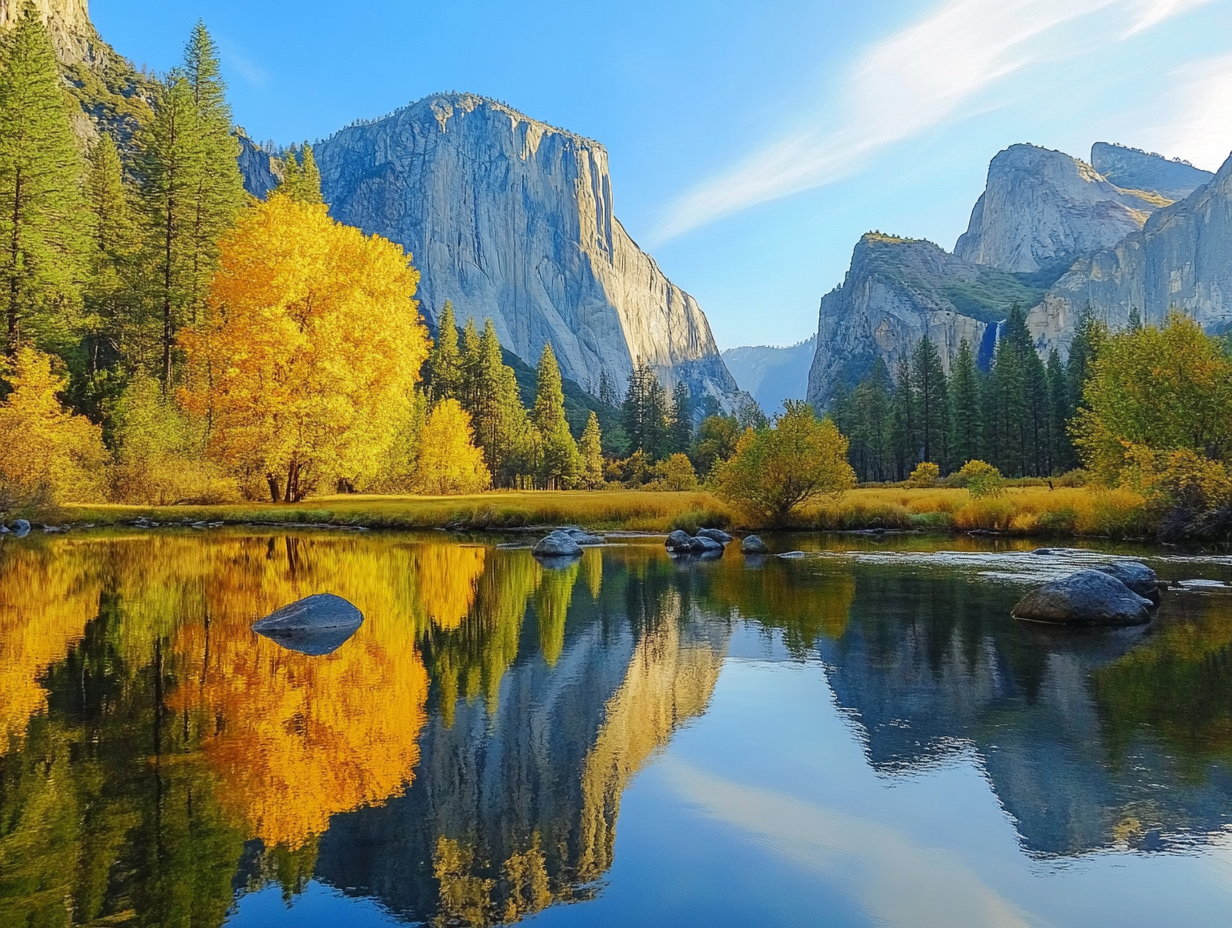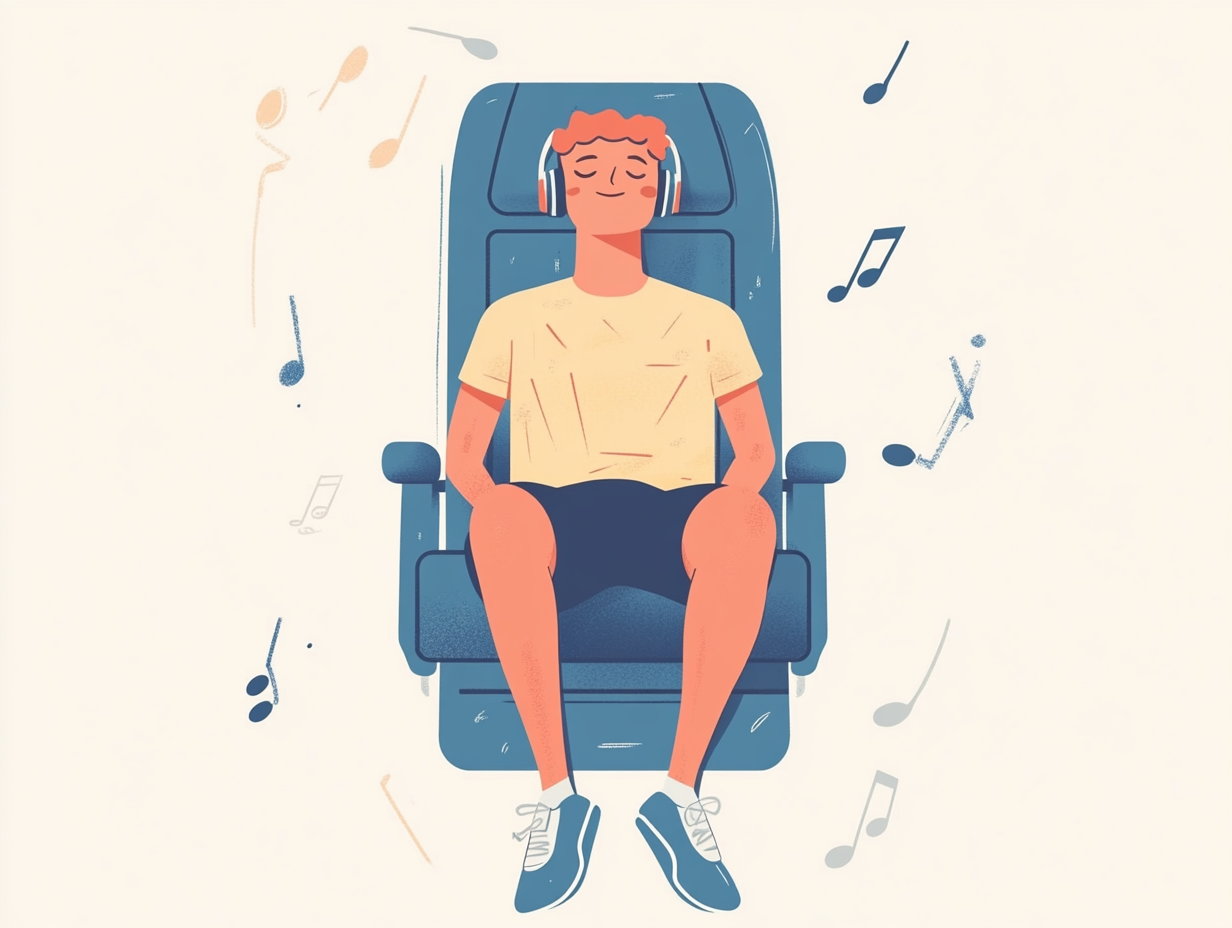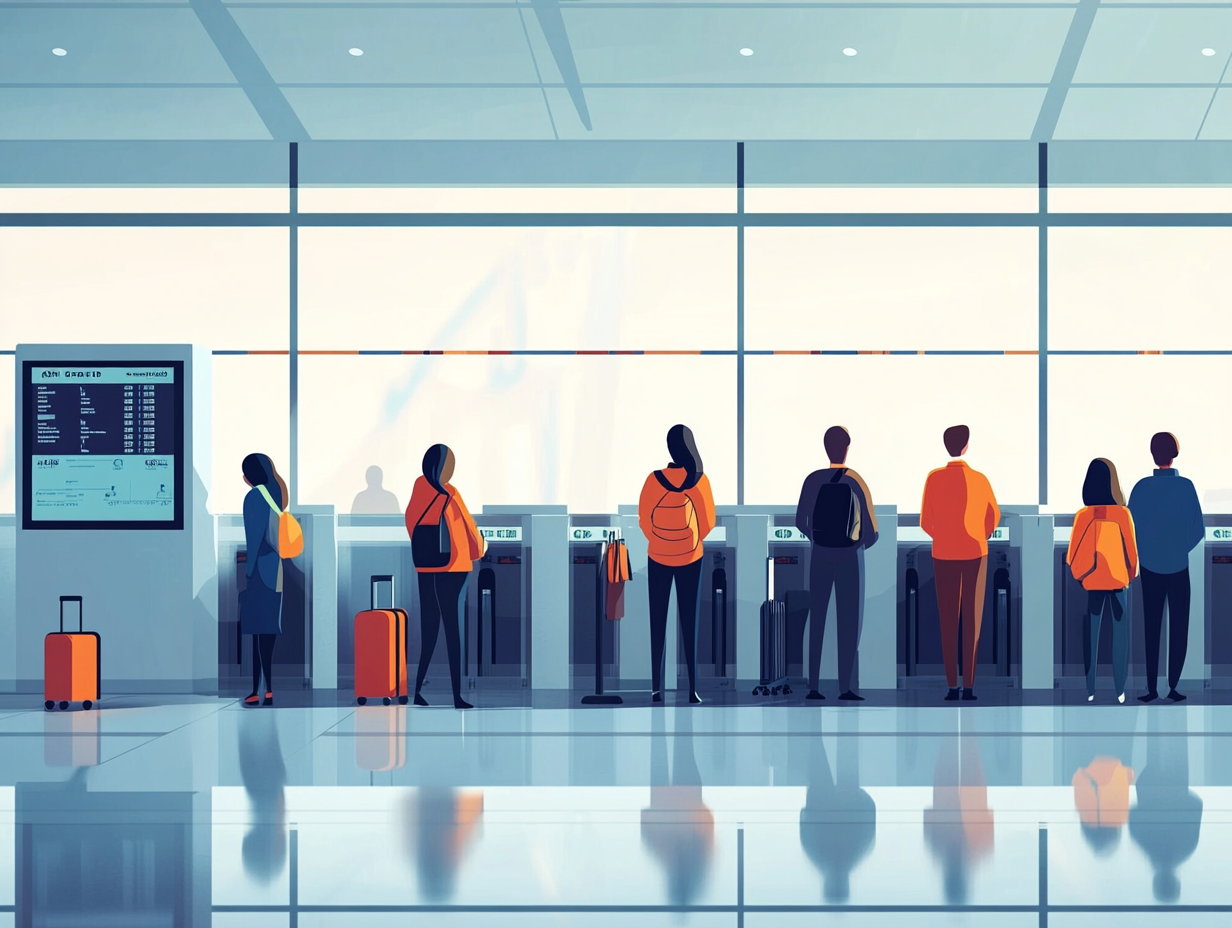Setting realistic expectations and scheduling downtime can help reduce stress and make your time away more enjoyable
It’s finally here: The vacation you’ve waited months for! You’ve more than earned it. So, why do you still feel so anxious?
“Many of us live with chronic stress, which means our bodies are pumped full of cortisol,” psychologist Susan Albers, PsyD, says. “It’s hard to turn off the chemical response that’s putting our bodies into overdrive and move into relaxation mode. It’s difficult both psychologically and physiologically. And we don’t get a lot of practice doing it in our everyday life.”
But that doesn’t mean you can’t learn. Dr. Albers shares her top eight tips for enjoying your time off, whether you’re globetrotting, camping or staycationing.
8 tips for enjoying your next vacation
Knowing how to unwind and have fun isn’t frivolous. It’s critical for your health and well-being.
“People who go on vacation have fewer health issues like heart disease, lower rates of depression and less stress,” Dr. Albers says.
Here are some concrete steps you can take to ensure your next break is restful and fun.
1. Set reasonable expectations
“Expectations share your experience. And I find a lot of people put pressure on themselves to enjoy their vacation because it’s the only one they have,” Dr. Albers reflects.
That makes every little thing about your experiences — and what you take away from them — feel more important than it really is.
If you’re using your time off to travel, Dr. Albers recommends that you do your research. Talking to friends, family or travel experts who’ve been there. They can share their experiences and help you get a sense of what’s actually possible.
2. Beware the comparison trap
Social media can be part of the reason our vacation expectations get so high. If you aren’t moved to tears at Machu Picchu, you may wonder if you’ve done something wrong. If you don’t have the trendiest camping equipment or can’t afford to take more than a couple days off, it can feel like you’re missing out. If you don’t do anything worthy of a selfie during your staycation, was it even fun?!
Remember: Those pictures and videos of your dream destination are curated to look as exciting, relaxing and unforgettable as possible.
There’s no such thing as a perfect vacation. And perfectionism is relaxation’s worst enemy. So, try to be gentle with yourself when things don’t go exactly according to plan.
3. Relax your way
Before you start planning an itinerary, ask yourself: What does relaxation mean to me?
“Everybody defines it differently,” Dr. Albers notes. “Some people find being active to be soothing, while others relax by being still. Either way, building fresh air and green space into your plan is a good idea. Being in nature can be really good for your mood.”
4. Plan wisely
For some people, planning a trip can be a source of stress. But it doesn’t have to be. In fact, some studies suggest that just knowing you’ve got a trip planned can improve your well-being.
“Visualizing, imagining, planning, anticipating: These activities can release dopamine and boost your mood,” Dr. Albers explains. She offers the following tips to make sure your vacation plans set you up for success.
- Be flexible. Wherever possible, build options into your schedule, as well as room for the unforeseen. “When things are rigid, it leads to a lot of disappointment,” she notes.
- Include everyone in the process. It’s OK to let the person who most enjoys the vacation planning process take the lead. But everybody (including children) should offer input. “Have each person come up with an activity that would be meaningful for them, whether that’s seeing a show, going on a hike or spending a few hours shopping,” Dr. Albers suggests.
- Don’t overschedule. It’s easier (and less disappointing) to add activities to your schedule than it is to cancel them. “Less is more on vacations, particularly with children,” she adds.
- Build in time to rest. Leave plenty of windows open for unstructured fun, afternoon naps and leisurely meals. “Rest is part of being on vacation,” Dr. Albers reminds us. “My motto is: Pace, don’t race through your vacation.”
- Prioritize childcare. If your vacation’s a family affair, you have two choices. Make all the activities age-appropriate or arrange for childcare for at least part of the trip. That may mean paying for a family member or friend to tag along. Onsite childcare may also be an option.
- It’s OK to split up. Your partner loves shopping. You prefer museum hopping. Instead of trying to “have it all,” build in some alone time. “Vacation should be a bonding experience, not a battle,” Dr. Albers encourages. “They improve relationships. But it’s OK to have different needs and interests.”
5. Respect your routine
A change of scenery may be just what the doctor ordered. But that doesn’t mean your vacation should be chaotic.
“Sometimes, people go a little bit overboard because they feel like they’re on vacation from their normal habits,” Dr. Albers explains. “I always recommend that you try to stick with your habits.” A few examples include:
- Eating the same amount of food you normally do
- Getting the same amount of sleep (if not more)
- Hydrating as much or more than usual
- Limiting your alcohol consumption
- Maintaining self-care or mindfulness practices, like meditation or journaling
- Staying on track with your medications
That may sound a bit boring. After all, being on vacation is a great opportunity to try new things! But it’s important to remember that change can be stressful on your body. Aches, pains, allergies, altitude sickness and tummy trouble are common travel companions. Keeping some parts of your life consistent helps you preserve the mental and physical energy to enjoy switching things up.
6. Pack snacks
Dr. Albers recommends packing plenty of healthy snacks when you hop on a plane or leave your hotel room, campsite or cabin. That goes double if you have dietary restrictions, allergies, disabilities or other issues with food that make grabbing something at the corner store iffy.
“The last thing you need is to get hangry on vacation,” Dr. Albers quips.
7. Disconnect from tech
For many of us, having a restorative, memorable trip would be a lot easier if we’d just put our phones down. So, consider using your time off to try a digital detox.
“We too often experience vacations through a lens,” Dr. Albers laments. “Sometimes, when you put the devices away — even just in your pocket — you’re more able to be truly present.”
8. Leave work at work
Unplugging from work isn’t just hard to do. In Dr. Albers’ clinical experience, it can be emotionally fraught, too.
“So many people feel guilty for taking vacations,” she explains. “There’s a work culture in the U.S. that says taking time off makes you lazy, that you’re not contributing or that your relaxation will burden somebody else.”
Those feelings of guilt can keep you from fully checking out while you’re on vacation. That’s why Dr. Albers emphasizes the importance of erecting — and defending — strong boundaries when it comes to your time off.
“Turn off your work phone. Put up an out-of-office email response. And set expectations with your colleagues around whether or how often you’ll check in,” she urges. Still feel like you’re letting people down? Or feel pressured by your coworkers? Consider talking to a mental health provider about the situation. They can provide an impartial perspective and advice.
You aren’t taking a vacation from yourself
Taking time off is an opportunity to rest, recharge and break up the monotony of daily life. But you’re still you. And that’s a good thing! As Dr. Albers puts it, “You aren’t taking a vacation from yourself.”
So, do the things that make you happy. Build in time for self-care. And don’t forget: There’s no one “right way” to vacation. There’s only your way.



